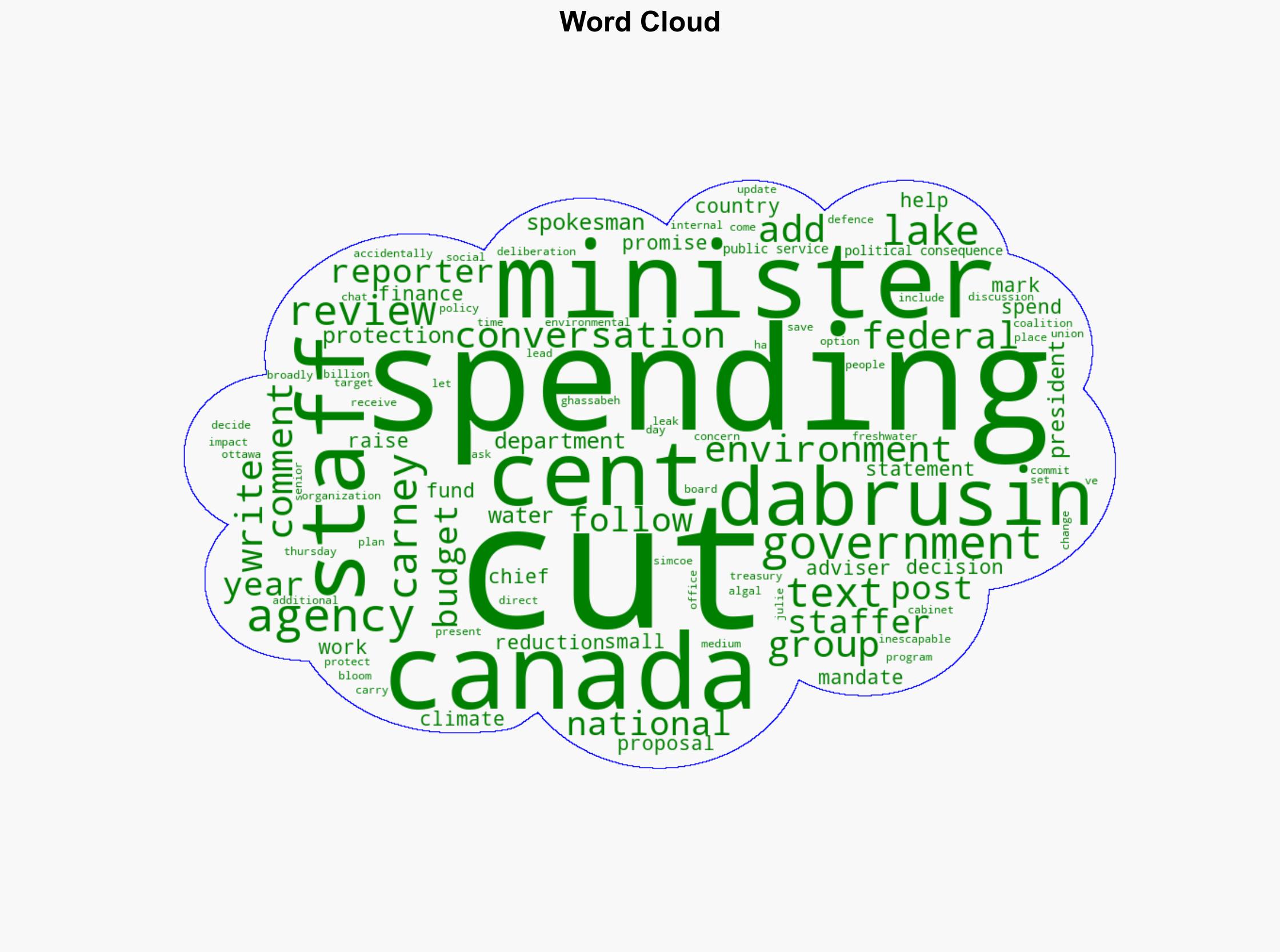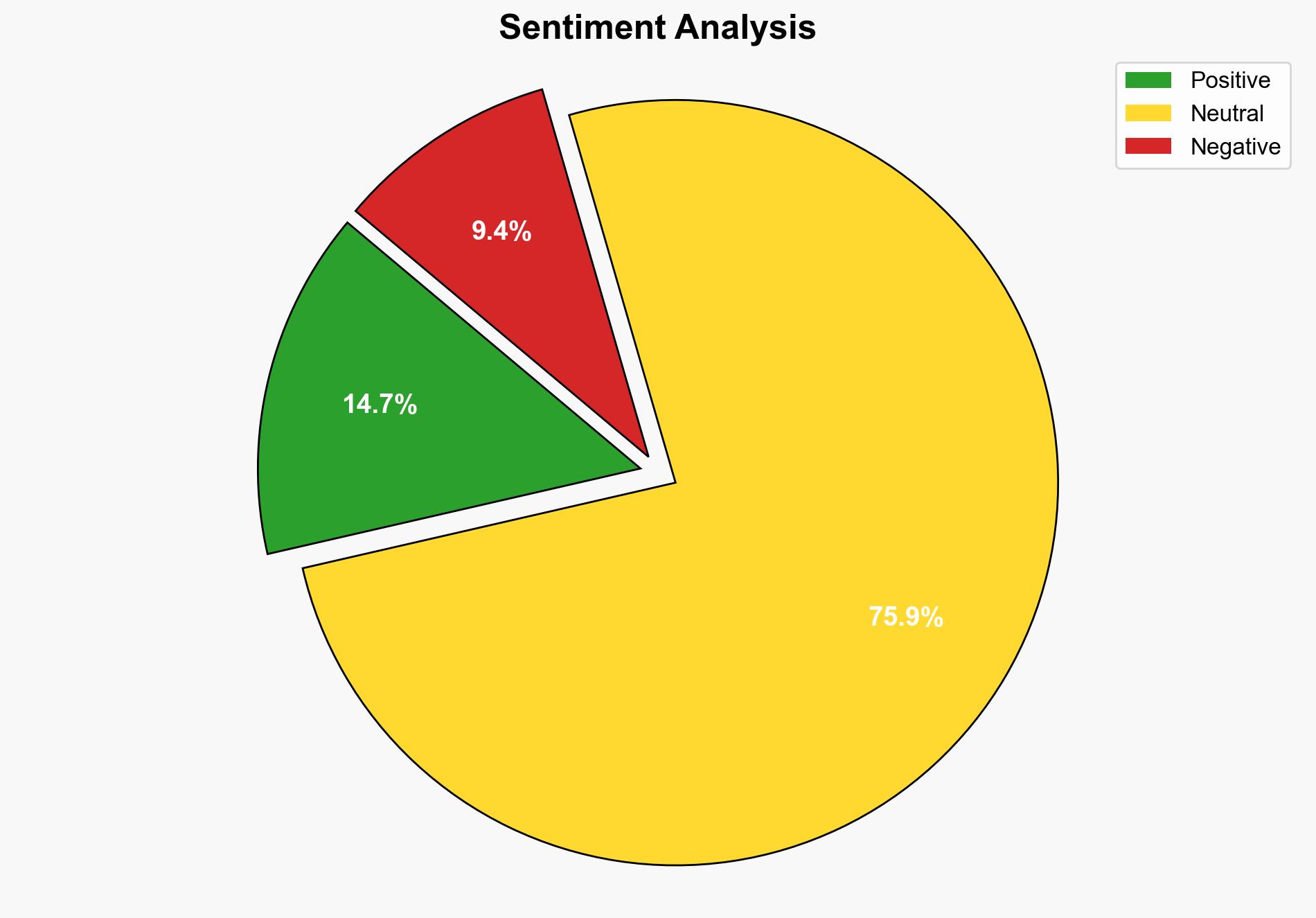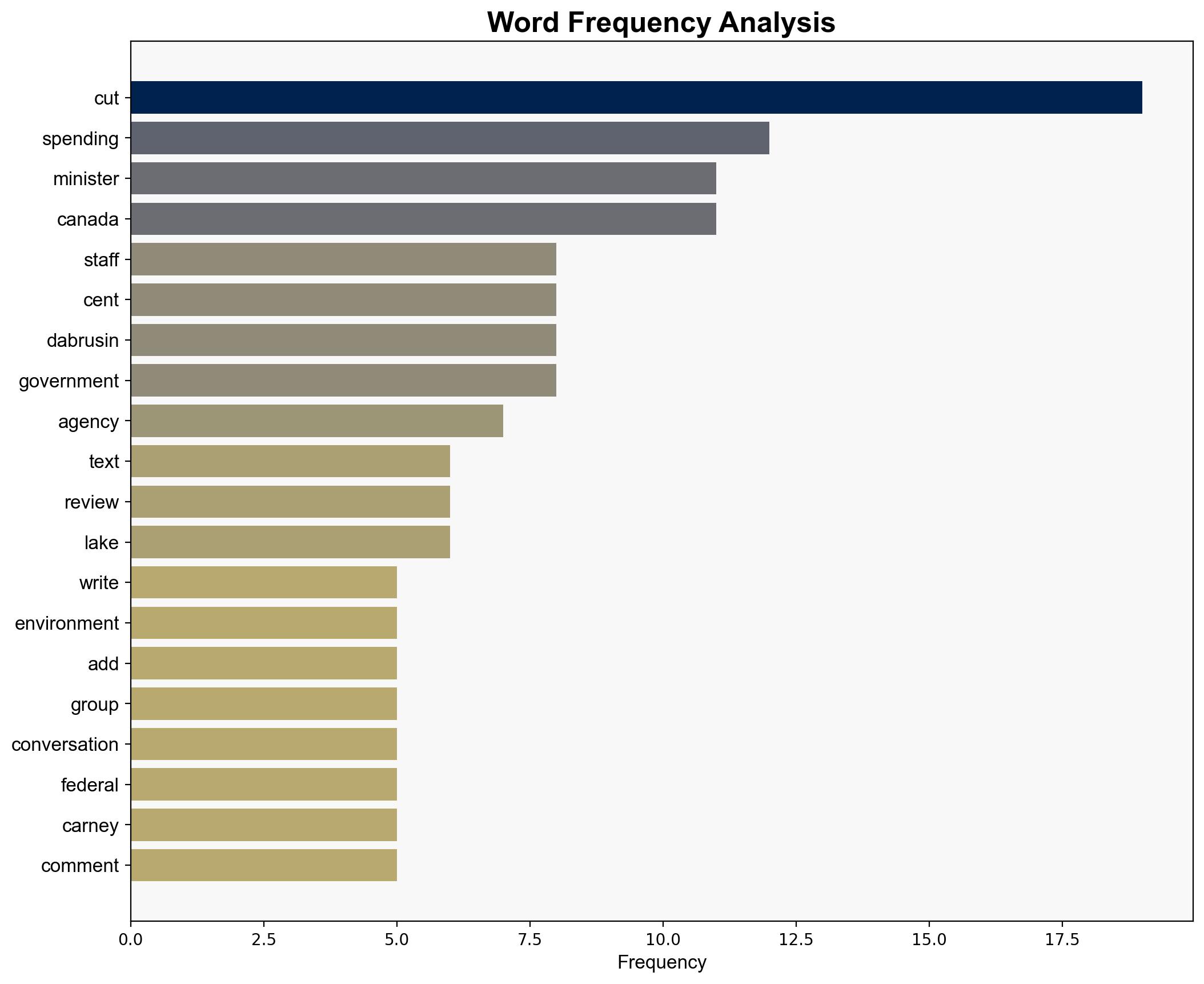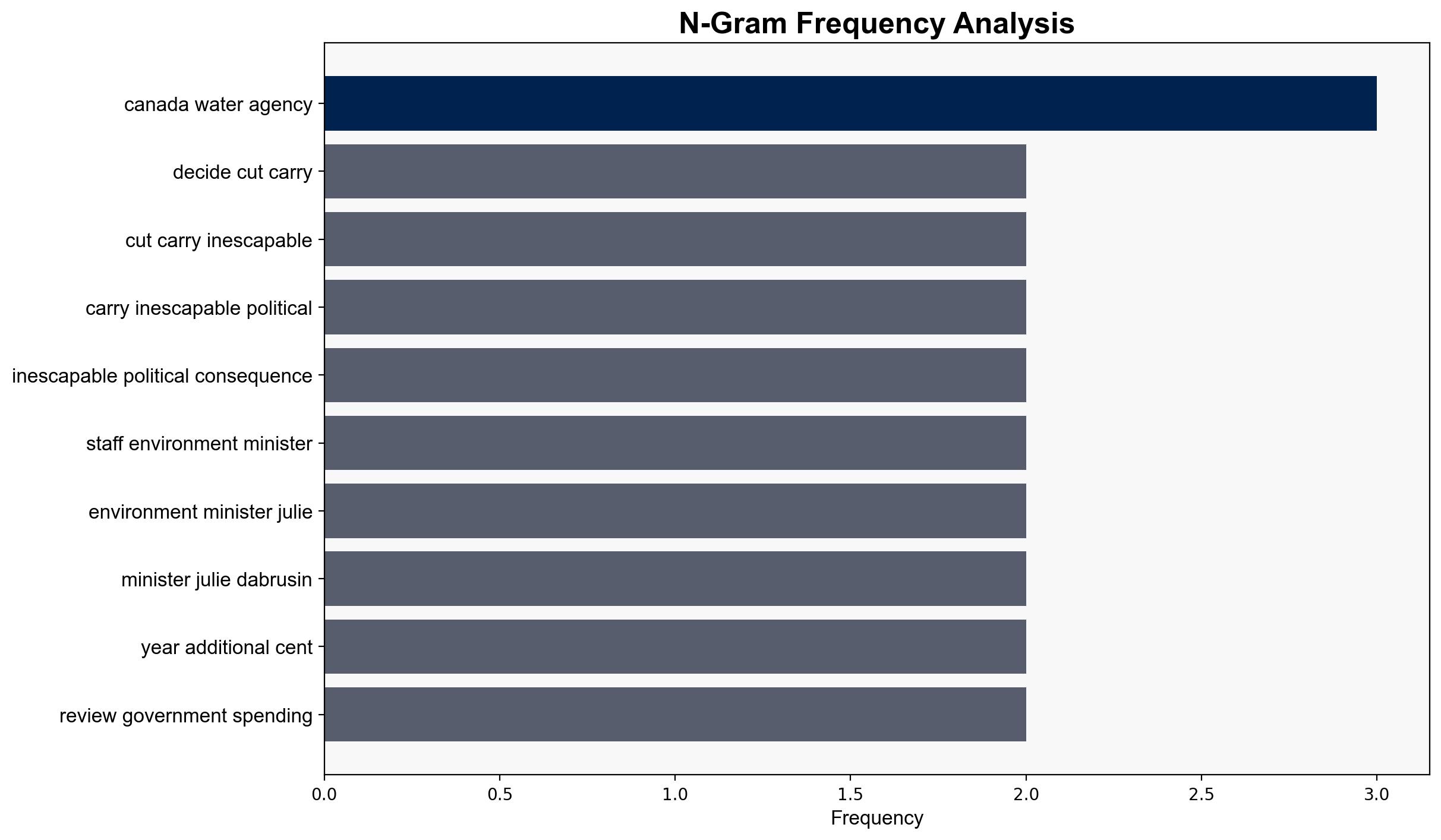‘Who let her in’ Minister’s staff accidentally text deliberations about 15 per cent spending cut to reporter – National Post
Published on: 2025-08-26
Intelligence Report: ‘Who let her in’ Minister’s staff accidentally text deliberations about 15 per cent spending cut to reporter – National Post
1. BLUF (Bottom Line Up Front)
The accidental text message leak from the staff of Julie Dabrusin reveals internal deliberations on a significant 15% government spending cut. The most supported hypothesis suggests this was an unintentional breach, highlighting vulnerabilities in communication protocols. Confidence level: Moderate. Recommended action: Strengthen internal communication security measures and conduct a comprehensive review of information handling procedures.
2. Competing Hypotheses
1. **Unintentional Breach Hypothesis**: The text message was accidentally sent to a reporter due to human error, reflecting a lapse in communication protocols.
2. **Intentional Leak Hypothesis**: The message was deliberately leaked by a staff member to influence public opinion or internal decision-making processes.
Using Analysis of Competing Hypotheses (ACH), the unintentional breach hypothesis is better supported due to the lack of evidence suggesting motive or gain from an intentional leak. The nature of the text and the context of its accidental inclusion in a group chat align with typical human error patterns.
3. Key Assumptions and Red Flags
– **Assumptions**: The assumption that all staff members are aligned with the minister’s objectives may overlook internal dissent.
– **Red Flags**: The absence of clear communication protocols and security measures increases the risk of future breaches.
– **Blind Spots**: Potential internal dissatisfaction or political maneuvering is not fully explored.
4. Implications and Strategic Risks
The leak exposes vulnerabilities in government communication, potentially undermining public trust and complicating fiscal policy implementation. It may also embolden opposition parties to exploit perceived disorganization. If not addressed, similar incidents could lead to more significant leaks, impacting national security or economic stability.
5. Recommendations and Outlook
- Conduct an immediate review of communication protocols and implement stricter security measures.
- Train staff on secure communication practices to prevent future incidents.
- Scenario Projections:
- Best Case: Enhanced protocols prevent future leaks, maintaining policy integrity.
- Worst Case: Continued leaks lead to significant policy derailment and public distrust.
- Most Likely: Initial backlash is managed, but ongoing vigilance is required to prevent recurrence.
6. Key Individuals and Entities
– Julie Dabrusin
– Mark Carney
– François-Philippe Champagne
– Jenna Ghassabeh
– Mark Fisher
7. Thematic Tags
national security threats, cybersecurity, government transparency, fiscal policy




